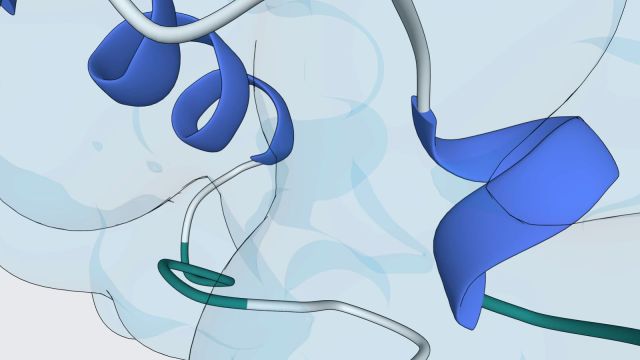OpenAI-backed drug discovery startup Chai Discovery introduces new AI model Chai-1
The company claims that a new advanced AI model can speed up the drug discovery process.
 Chai-1 has outperformed Google DeepMind’s AlphaFold model in certain benchmarks. (Image: Chai Discovery)
Chai-1 has outperformed Google DeepMind’s AlphaFold model in certain benchmarks. (Image: Chai Discovery)Artificial Intelligence is making rapid strides in various fields. ChatGPT-maker OpenAI and venture capital firm Thrive Capital recently announced their support for Chai Discovery, a biology startup founded by former OpenAI and Meta researchers. Recently, the AI startup raised close to $30 million to develop AI models for drug discovery.
On September 9, the startup introduced Chai-1, an advanced AI model that can predict the structure of molecules, essential for drug discovery. The company has said that the model can be used for free through a web interface. Chai Discovery is also sharing the model’s code and tools for non-commercial uses so developers can build on it for research and development.
What is Chai’s AI model Chai-1?
The new AI model from Chai can reportedly predict biochemical molecule structures and this could likely speed up drug development. According to the makers, Chai-1 outperforms Google DeepMind’s AlphaFold model on certain benchmarks. The model can work with different types of molecules such as small molecules, proteins, DNA, RNA, and even on chemical modifications. The company has made its first model free and open-source prompting more research and development.
The company has published a comprehensive analysis of the model in its Chai-1 Technical Report. According to the report, Chai-1 performs exceptionally well in accurately predicting how proteins and small molecules and drugs interact. The model is capable of dabbling between multiple tasks with ease such as predicting interactions between multiple proteins.
Real-world applications
The report claims that Chai-1 has the advantage of using a wide range of inputs like raw molecular data, experimental findings and sequence information. It excels when limited data is available, which makes it useful in real-world applications where complete information is often unavailable. For instance, Chai-1 can work without Multiple Sequence Alignments (MSAs), commonly used in other models and yet deliver accurate results.
As per the report, Chai-1 performs well across various benchmarks. It outperforms Google DeepMind’s AlphaFold3 in specific tasks like predicting protein-ligand interactions. The model has been developed for practical use in research and drug discovery. It is essentially a state-of-the-art tool for understanding the structure of biological molecules with crucial applications in the pharmaceutical industry.
As of now, Google DeepMind’s AlphaFold is the most advanced protein prediction model, however, Chai-1 outperforming it is indicative of the rapid progress in AI. With big firms pumping in cash into drug discovery, we may well be closer to getting cures for major diseases using AI.







